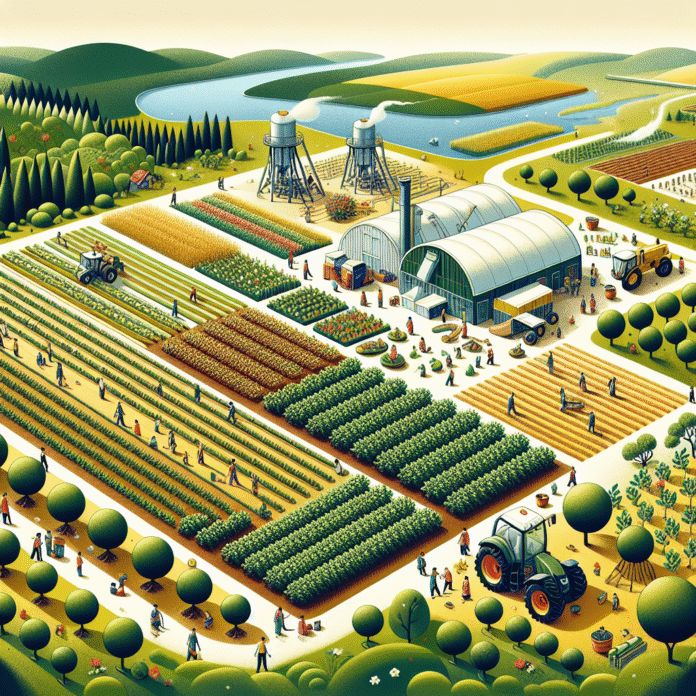McCain Foods and the Adoption of Regenerative Farming Practices
“`html
How McCain Foods Adopted Regenerative Farming Practices
In recent years, McCain Foods has taken significant strides toward sustainability by embracing regenerative farming practices. This commitment is not only a response to growing consumer demand for environmentally friendly products but also an acknowledgment of the critical role agriculture plays in combating climate change.
A Commitment to Sustainability
McCain Foods, one of the world’s largest manufacturers of frozen French fries and other potato-based products, has recognized that traditional farming methods can lead to soil degradation, loss of biodiversity, and increased greenhouse gas emissions. In response, the company has partnered with farmers to promote regenerative agriculture, which focuses on restoring soil health, enhancing biodiversity, and improving water retention in agricultural systems.
Key Principles of Regenerative Agriculture
Regenerative agriculture encompasses several key practices, including crop rotation, cover cropping, reduced tillage, and integrated livestock management. These methods help to build healthy soil ecosystems, sequester carbon, and create a more resilient agricultural system capable of withstanding climate variability. By implementing these practices, McCain Foods aims to not only enhance the sustainability of its supply chain but also contribute positively to the environment.
Collaborative Efforts with Farmers
To facilitate the transition to regenerative practices, McCain Foods has established collaborative programs with its network of farmers. The company provides education and resources to help farmers adopt these innovative techniques. Additionally, McCain supports research initiatives aimed at measuring the ecological impact of regenerative practices and finding new ways to implement them effectively.
Measuring Success and Impact
McCain Foods is committed to transparency and accountability in its sustainability efforts. The company regularly assesses the impact of its regenerative farming initiatives, tracking metrics such as soil health, biodiversity levels, and carbon sequestration. These evaluations not only showcase the effectiveness of their programs but also help refine and improve strategies moving forward.
Looking to the Future
As the global demand for sustainable food sources continues to rise, McCain Foods is determined to lead by example. The company’s investment in regenerative agriculture reflects a broader trend within the food industry towards sustainability and environmental stewardship. By fostering a regenerative mindset among its suppliers and stakeholders, McCain Foods is paving the way for a more sustainable future in agriculture.
In conclusion, McCain Foods’ commitment to regenerative farming is a vital step in addressing the environmental challenges facing the agricultural sector. By prioritizing sustainability and collaborating with farmers, McCain is not only enhancing its own supply chain but also contributing to the health of the planet for future generations.
“`


